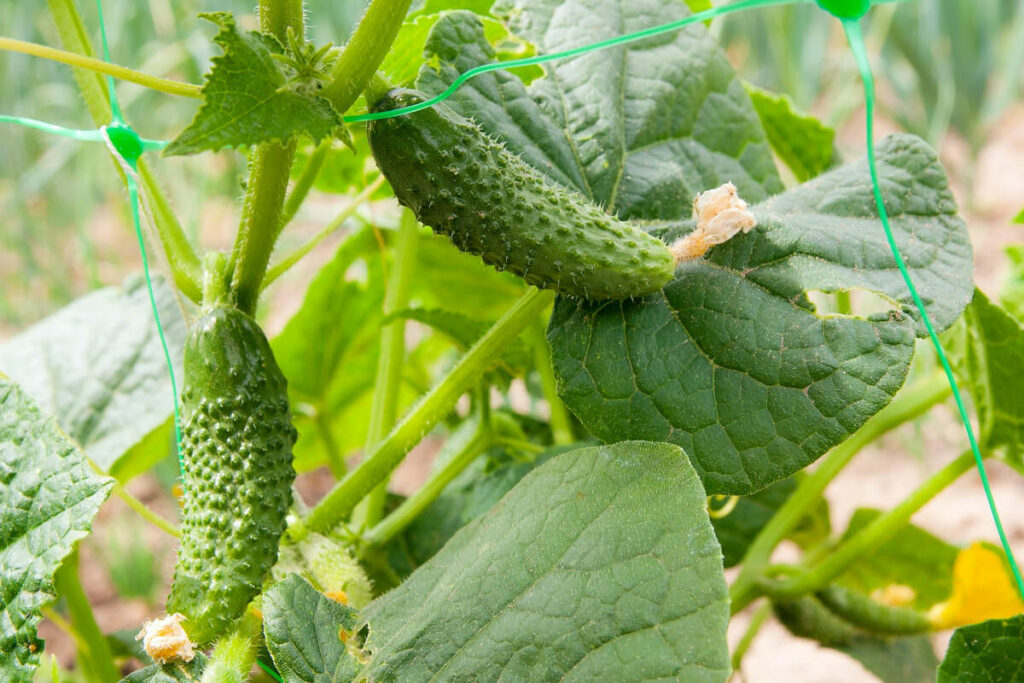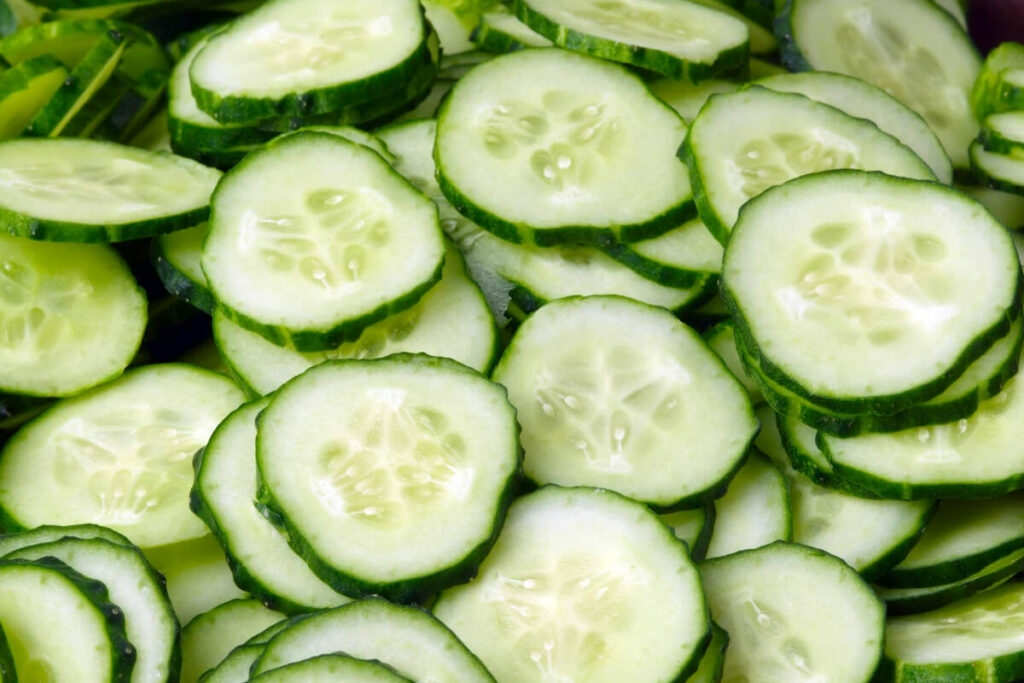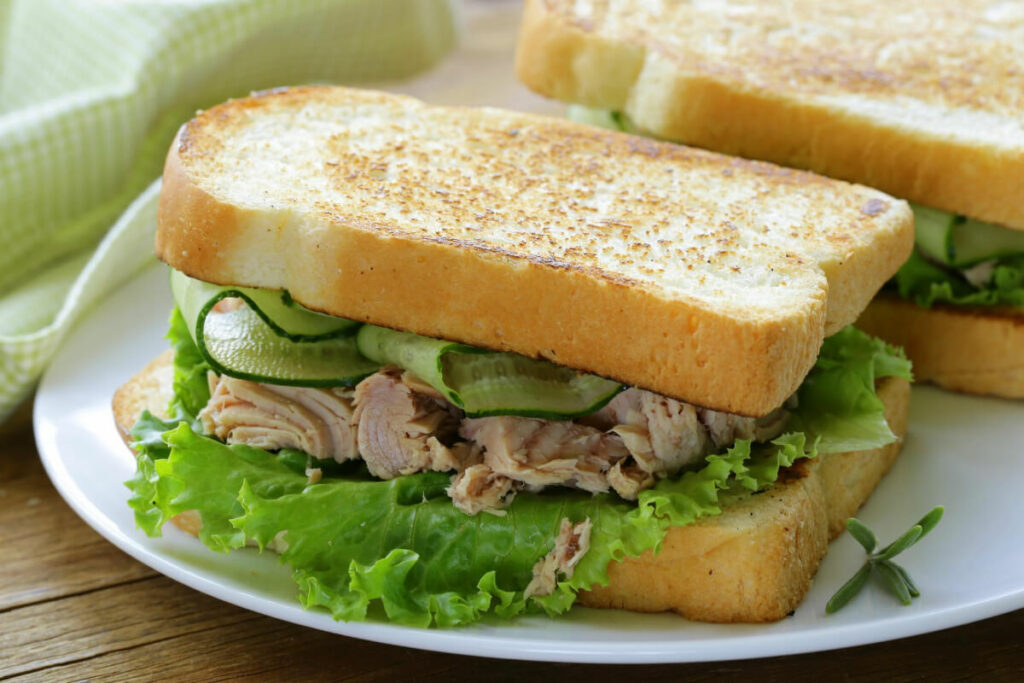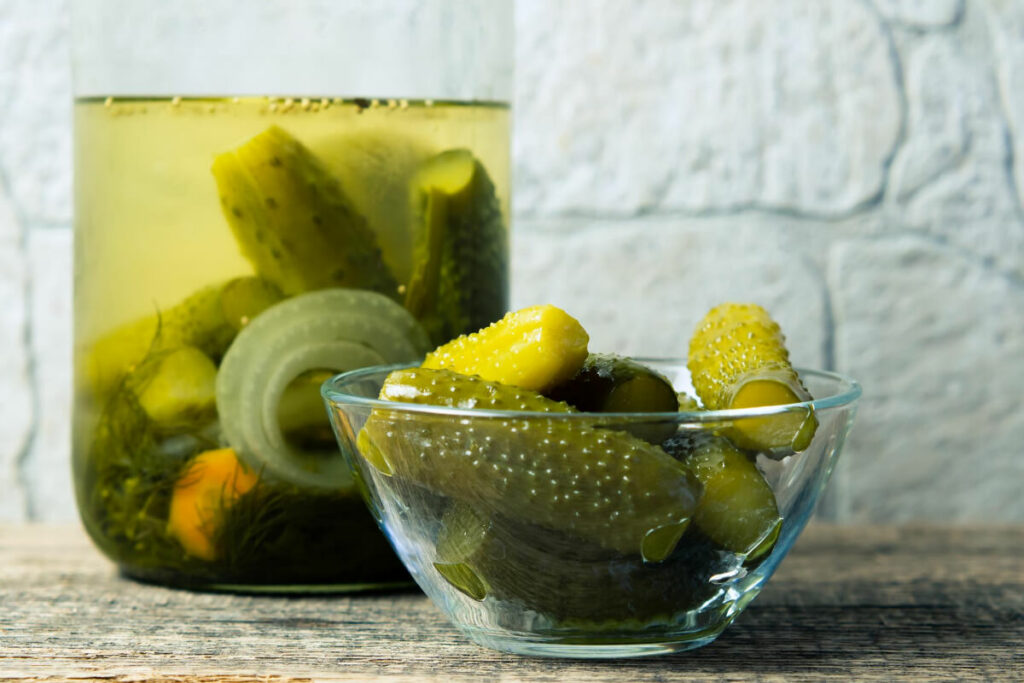Is cucumber a fruit or vegetable?
It can be confusing about what the cucumber is. It’s not just any old plant. It has its own unique characteristics and uses.
Whether you call it a fruit or a vegetable, the cucumber is delicious and nutritious. But how do you decide if it’s a fruit or a vegetable?
In this article, I’ll explain why the cucumber is both a fruit and a vegetable. And I’ll also tell you why it matters.
Fruits and vegetables are different things to different people. Most of us will assume that fruit is sweet, and vegetables are eaten in savory salted dishes. So, in the case of the cucumber, most of us might identify this tasty plant product as a vegetable. But is this so?

Is the Cucumber a Fruit or Vegetable?
Botanically, the cucumber is a fruit because science classifies plant parts as fruits or vegetables according to a particular plant’s composition and biology. But for cultural and culinary uses, the cucumber is also classified as a vegetable because of its uses in the kitchen and our diets.
The cucumber is named the Cucumis sativus and is a member of the Cucurbitaceae family. Cucumbers originate from a variety of locations in Southeast Asia where they’re a favorite in summer cuisine.
Why Are Cucumbers Fruit?
Botany defines fruit as the product of a flower’s fertilization, and that fruit is a reproductive structure that contains the seed or seeds necessary for reproduction.
Cucumbers fit this definition because they develop from the fertilization of the cucumber plant’s blooms.
While there are hundreds of cucumber varieties, and some will have seeds and others will be seedless varieties, all are considered fruits. This botanical classification stems from the fact that they are the byproduct of a flower’s fertilization.
- Related article: How to Save Cucumber Seeds to Grow
Interestingly, cucumbers are also classified as berries! This is because they grow from a single bloom that has only one ovary.

Why Are Cucumbers Vegetables?
Culturally and for culinary purposes, the cucumber is also considered a vegetable.
Cucumbers are considered vegetables for their culinary uses, especially in salads. They’re often pickled to be used with sandwiches or as a simple side dish. They are not used in sweets or desserts though.
Cucumbers can easily be found in your local grocery store’s vegetable department right next to other greens.
A final reason why some will consider cucumbers to be fruits is because all fruits are thought of as vegetables. The more general definition of what constitutes a vegetable is “any plant whose fruit, seeds, roots, tubers, bulbs, stems, leaves, or flower parts are used as food.”
- Related article: Growing Organic Cucumbers
Health Benefits of Cucumbers
When it comes to our diet, cucumbers provide lots of vitamins and minerals, although they are primarily comprised of water. Here are some important health benefits to enjoy when including cucumbers in your diet.

1. Cucumbers Can Improve Overall Health
Cucumbers contain numerous vitamins and minerals necessary for general health and boosting the immune system. A single cucumber weighing approximately 11 ounces contains:
- 2 grams of protein
- 2 grams of fiber
- 11 grams of carbohydrates
- 14% Required Daily Intake of Vitamin C
- 62% RDI of Vitamin K
- 10% RDI of magnesium
- 13% RDI of potassium
- 12% RDI of manganese
The cucumber consists of 96% water making it great for hydration too.
2. Cucumbers May Help with Weight Loss
Potentially, this long green berry can help you with weight loss and management in more than one way.
They are low in calories, so feel free to eat a large portion. One cup of cucumbers will add only 16 calories to your calorie count, while an entire 11-oz. cucumber will add only 45 kcal.
Because they are so low in calories, yet boast a refreshing taste and crunchy texture, they can substitute other salad ingredients with more calories.
Their high water content won’t hurt either.
3. Cucumbers May Help Lower Blood Sugar
Some research has indicated that cucumbers are one of several edible plants that may aid in the reduction of blood sugar levels and prevent diabetes-connected complications.
While most of these studies are extremely promising, they have been conducted with laboratory animals, so more is needed to determine specific benefits for humans.
4. Cucumbers Can Help with Regularity
Cucumber consumption can help you with regular bowel movements. A contributing factor to constipation is dehydration. Due to the high amount of water in cucumbers, they improve hydration and may render stools softer and more regular.
Cucumbers also contain soluble fiber which contributes to digestive tract health and elimination regularity.
5. Cucumbers May Help in Preventing Diseases
Cucumbers contain antioxidants that block the chemical reaction known as oxidation and free radicals. Accumulating free radicals in the body can lead to a number of serious chronic diseases.
Free radical accumulation has been linked to heart disease, cancer, lung disease, and autoimmune illnesses. Because cucumbers contain flavonoids and tannins, they are considered to effectively block harmful free radicals.
Adding Cucumbers to Your Diet
Cucumbers are easy to introduce to your diet and are usually eaten raw, requiring very little preparation.
Sliced cucumbers can be inserted onto a raw vegetable tray and eaten with salad dressings and dips, yogurt, hummus, or olive oil.
Apart from their traditional starring role in salads, they can be baked as chips, included in simple or grilled sandwiches, and they can be pickled for a spicy twist.

Is Cucumber a Fruit or Vegetable? Final Thoughts
The cucumber is a versatile fruit and vegetable that can be used in many ways. It can be added to any dish where its flavor would enhance the overall experience.
Learn more about other vegetables and fruits with these articles:

